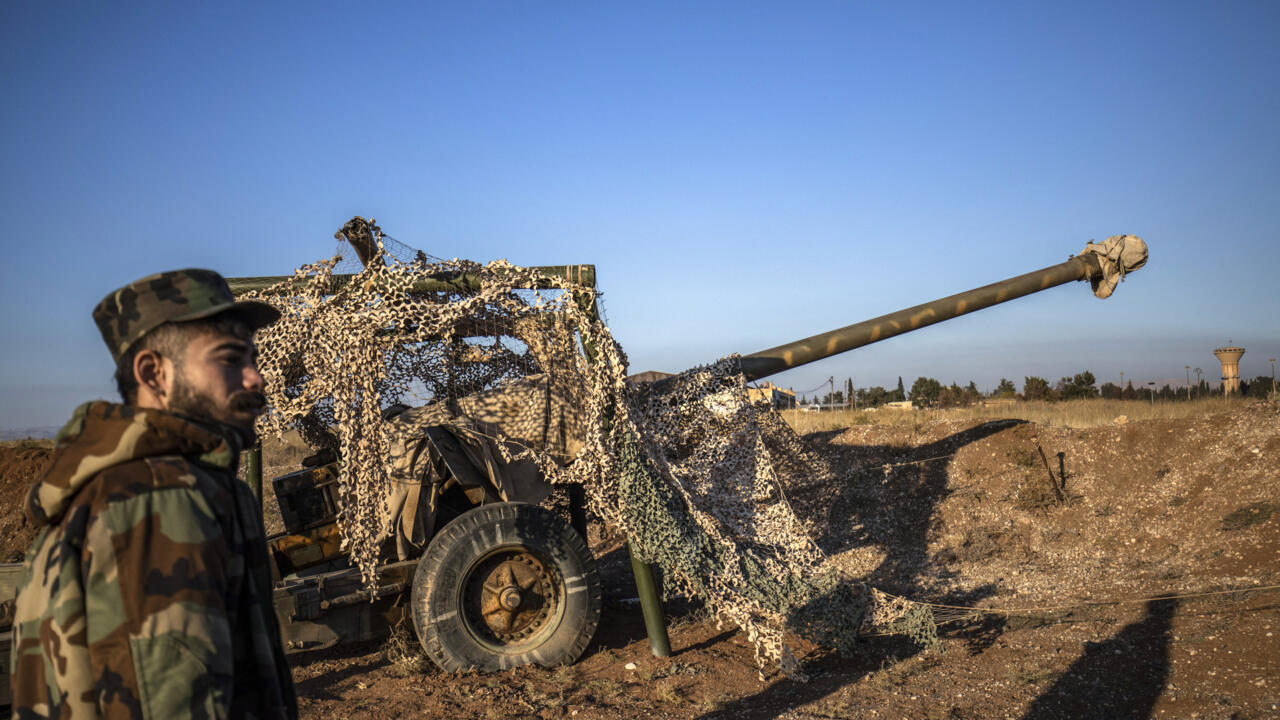Turkey’s President Recep Tayyip Erdogan has warned of military action against the Syrian Democratic Forces over its failure to honour an agreement to merge its military with the new regime in Damascus.
In a move steeped in symbolism, Turkey’s leader chose recent celebrations marking the Ottoman Turks’ defeat of the Byzantine Christians at the Battle of Malazgirt in 1071 to issue an ultimatum to the Syrian Democratic Forces (SDF).
“Those who turn to Ankara and Damascus will win,” Erdogan bellowed to thousands of supporters on 26 August. “If the sword is unsheathed, there will be no room left for pens and words.”
Turkey, a strong ally of Syria, has a military presence in the country and the two governments recently signed a defence training agreement.
But Turkey is unhappy with the presence of the SDF, a coalition of Kurdish and Arab forces, which controls a large swathe of Syria bordering Turkey’s own predominantly Kurdish region.
Peace or politics? Turkey’s fragile path to ending a decades-long conflict
Buying time
The SDF is affiliated with the Kurdistan Workers Party (PKK), which has for years been fighting Turkey for greater Kurdish minority rights.
The PKK is listed as a terrorist organisation by Turkey, the European Union and the United States. But Ankara is engaged in a peace process with the Kurdish militants, who have committed to disbanding.
However, Kurdish analyst Mesut Yegen, of the TIM think tank in Istanbul, says the disarmament process would be limited to Kurds from Turkey, and doesn’t include SDF forces in Syria.
Erdogan is now ramping up pressure on the SDF to honour an agreement its leader Mazloum Abdi signed in March with Syria’s new President, Ahmed Al Sharaa, to merge his military forces with the new regime in Damascus.
The deal is backed by the US, which has a military force in the SDF-controlled region as part of its war against the Islamic State.
But, according to Fabrice Balanche from Lyon University: “The SDF has no intention of implementing the agreement made in March. Mazloum just wanted to gain time.”
Balanche points out that Abdi’s SDF is a staunchly secular organisation and remains deeply suspicious of Sharaa’s jihadist connections.
Recent attacks on Syria’s Druze minority by forces linked to Sharaa appear to confirm the SDF’s fears over merging with the Damascus regime, says Balanche.
Syria’s interim president vows justice for Druze after deadly clashes
‘Israel would like a weak Syria’
At the same time, Erdogan is aware that the emergence of an autonomous Kurdish state on its border could be exploited by its rival Israel, which is looking for non-Arab allies in the region.
Aydin Selcen, a former senior Turkish diplomat and an analyst for Turkey’s Mediyascope news outlet, said: “Strategically, Israel would like a weak Syria, a weak Damascus, a weak Beirut and a weak Tehran.”
Turkey has carried out military incursions against the SDF, and its forces remain massed on the border.
But Balanche says American presence there will likely deter any new Turkish military action. However, he warns that Ankara could seek to fuel Kurdish Arab rivalries within the SDF, with the fall of former ruler Bashar al-Assad last December.
Turkey walks a fine line as conflict between Israel and Iran cools
“It is different now, you have a Sunni leader in Damascus, and many [Arab] tribes, many people, prefer to join Damascus,” he explained.
“So the risk is a proxy war. Of course, for the new regime, it would be a disaster. If you have no peace, you have no investment, you have no trust.”
The dilemma facing Ankara is that any new conflict against the SDF would likely weaken the Sharaa regime – a key ally.
